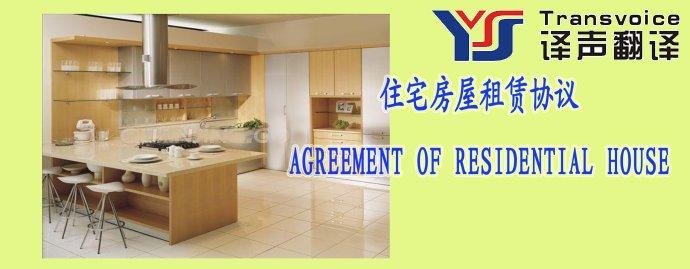House Translation in English
There are several ways to translate the word "房子" (fángzi) into English. The most common translation is "house." However, depending on the context, there are other possible translations. Let's explore some of the different translations and their specific uses.
1. House:
This is the most general translation of "房子." It refers to a building where people live. For example, "我有一座大房子" can be translated as "I have a big house." This translation is suitable for most everyday situations when referring to a place of residence.
2. Home:
"Home" is another translation that can be used interchangeably with "house." However, "home" has a more emotional and personal connotation. It is often used to convey a sense of belonging and comfort. For instance, "我回家了" can be translated as "I went home." This translation emphasizes the emotional attachment to a place rather than just the physical structure.
3. Residence:
"Residence" is a formal and more sophisticated term for a dwelling. It is often used in legal or official contexts. For example, when filling out forms or official documents that require information about one's address, you may encounter the term "residence." It is commonly used in phrases like "place of residence" or "permanent residence."
4. Dwelling:
Similar to "residence," "dwelling" is a more formal term used to refer to a place where someone lives. It is commonly used in legal or technical contexts. For instance, when discussing building codes or real estate regulations, the term "dwelling" may be used. It is not as commonly used in everyday conversation.
5. Abode:
"Abode" is a more poetic and literary term for a place of residence. It carries a sense of peacefulness and tranquility. You are more likely to encounter this term in literature or written descriptions. For example, "他寻找新的安宁之所" can be translated as "He sought a new abode."
It is important to note that the choice of translation depends on the specific context and the desired tone of the conversation. In most cases, "house" or "home" would be the appropriate translation for "房子." However, when dealing with legal documents or technical discussions, "residence" or "dwelling" may be more suitable.

In conclusion, the translation of "房子" into English can vary depending on the specific context. The most common translations are "house" and "home," but other options include "residence," "dwelling," or even "abode." It is essential to choose the appropriate translation based on the intended meaning and the level of formality required.











